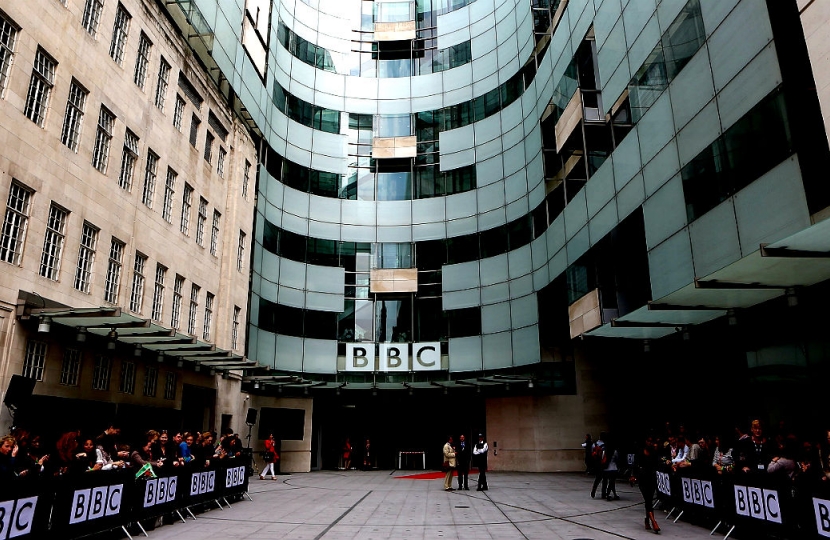
I welcome the Government’s draft BBC Charter which builds upon the BBC White Paper and subsequent Select Committee report.
The BBC will get an 11-year charter, with a “health check” half way through to assess whether governance arrangements and regulation is working properly. The funding model of the BBC via licence fees has been secured for the duration of the charter and the licence fee will increase in line with inflation for the next 5 years.
A key change in the charter is that BBC talent will have their salary details made public if they earn more than £150,000. The plans go much further than those suggested in the White Paper which recommended a £450,000 trigger. But pressure my committee colleagues and me, as well as from the public, have seen the threshold dropped. The Committee concluded that there is no good reason to hide BBC performer’s total pay under the guise of preventing poaching by other stations given that salary levels are already common knowledge in the industry and should be accountable to the public as well.
A powerful new unitary board will govern the BBC, with six government appointees and up to eight members appointed by the BBC. Whilst the Committee welcomed the decision to abolish the BBC Trust and establish a unitary Board it retained serious concerns over the appointment of the new Board, including the way the Chair was reappointed without a recruitment process. It is therefore welcome that the new Chair of the unitary board will be recruited in an open, transparent and fair process, following the resignation of Rona Fairhead. The National Audit Office will also become the BBC financial auditor.
To guarantee content is innovative, ambitious, inspirational and bold, with genuinely different and distinctive programming, the BBC’s mission is being reformed.
The new BBC Charter builds on its strong points, prioritising its independence and ensuring it has a solid and exciting future for years to come. Despite all the doom and gloom scare stories this charter will give us a BBC that is stronger than ever.
Where in the past there have been clear weaknesses, such as in openness and transparency, much needed changes have been made. I am glad that many of the recommendations those of us on the Select Committee made will be implemented.
Licence fee payers have a right to know where and how their money is being spent to a much greater degree than they currently do, including the large sums of money being spent on BBC talent.
On the subject of the appointment of the Chair of the new BBC unitary board, most of us believe that in all cases the best person for a job should get it. Whilst Rona Fairhead was undoubtedly extremely capable; an open, fair and transparent recruitment process is always preferable to a closed shop appointment.
